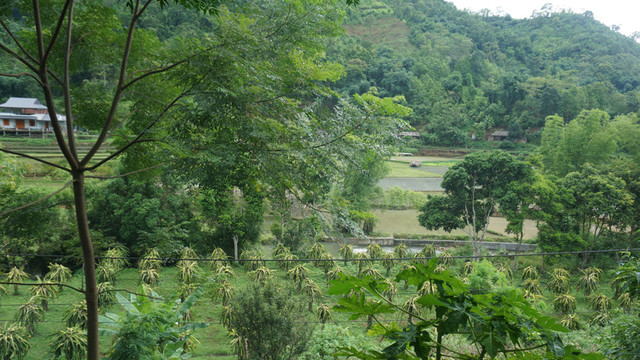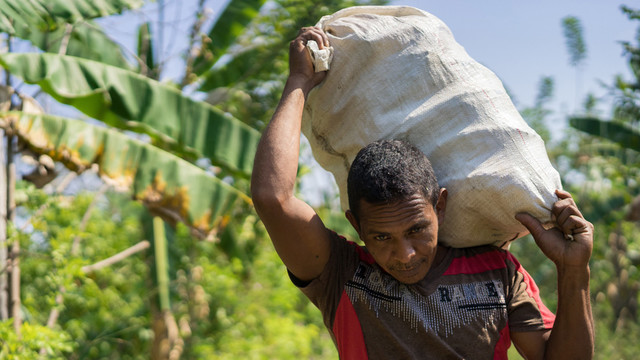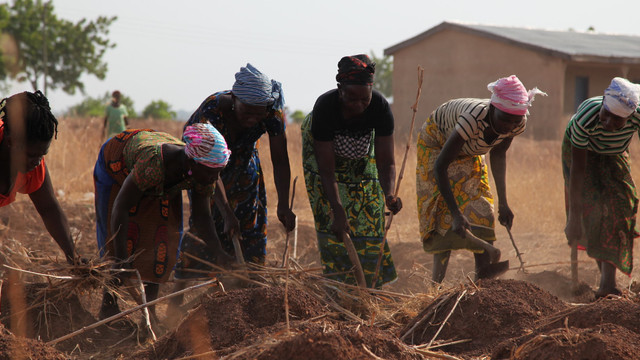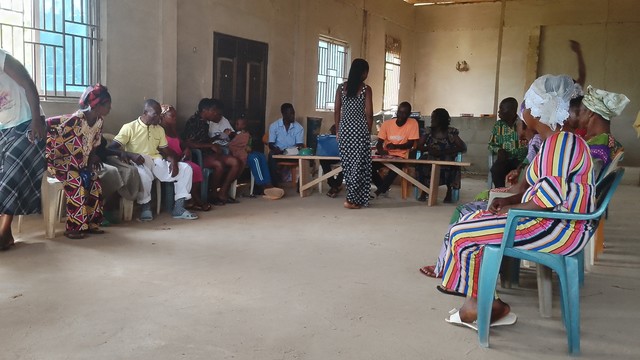IIED seminar on locally controlled enterprises for forest peoples
A "Critical Theme" seminar on Tuesday, 7 July looked at the benefits and challenges of locally controlled enterprises for forest peoples.

IIED's "Critical Theme" seminar focused on the importance of local control to indigenous people, particularly in relation to forest peoples. The seminar presented examples of successful self-determined development, including those based on local land use plans and community resource management.
The seminar, part of IIED's Critical Theme series that explores new ideas, highlights research and profiles the work of partners, was led by Joji Carino, the director of the Forest People's Programme (FPP), an international NGO that supports the rights of peoples who live in forests and works to promote community-based sustainable forest management.
The meeting also featured a presentation by the co-leader of IIED's forest team, Duncan Macqueen. He discussed business models that can successfully serve local control, highlighting examples from IIED's role in the Forest and Farm Facility (FFF). IIED is a partner in FFF, a global programme that supports the work of federations of forest and farm producers.
We collated a round-up of coverage of the seminar via Storify - you can see it below:
Forests cover one third of the Earth's land mass, and 1.6 billion people depend on forests for their livelihoods. The people who live in forests, and who have customary rights over them, have developed ways of living that are highly attuned to their environments. However, forest policies commonly treat forests as empty lands controlled by the state and available for development by industries such as logging, agribusiness and mining.
FPP was set up in 1990 to support indigenous forest peoples in their struggles to defend their lands and livelihoods. It works to create a political space to secure indigenous people's rights control over their lands.
About the speakers
Joji Carino is director of the Forest Peoples Programme. She has spent 25 years actively campaigning for indigenous peoples' human rights at community, national and international levels. She started as an activist and analyst of indigenous peoples' issues in her native Philippines. She was formerly executive secretary of the International Alliance of Indigenous and Tribal Peoples of the Tropical Forests, and served as commissioner on the World Commission on Dams. She is also policy advisor and European desk coordinator of Tebtebba, the Indigenous Peoples International Centre for Policy, Research and Education.
Duncan Macqueen co-leads IIED's forests team, which works to improve forest livelihoods and ensure forests are managed in a fair and sustainable way.He is an expert on locally controlled forest farm enterprises. His work looks at governance reforms that can support such enterprises, including measures affecting tenure, market access, technical extension and organisational development. He is currently researching organisational structures for business and policy representation that can best serve the needs of local forest farm producers.
His presentation at the seminar can be viewed on IIED's SlideShare site and below.
About the series
The Critical Theme seminars cover a wide range of speakers and topics. This year IIED has hosted events discussing 'Gender and environmental change', 'Pollution, politics and social media in China', and the links between climate change and food security. Other events have focused on the governance of Marine Protected Areas, the Asian Coalition for Housing Rights (ACHR) and its work on reducing urban poverty, and the importance of meaningful stakeholder reporting.



